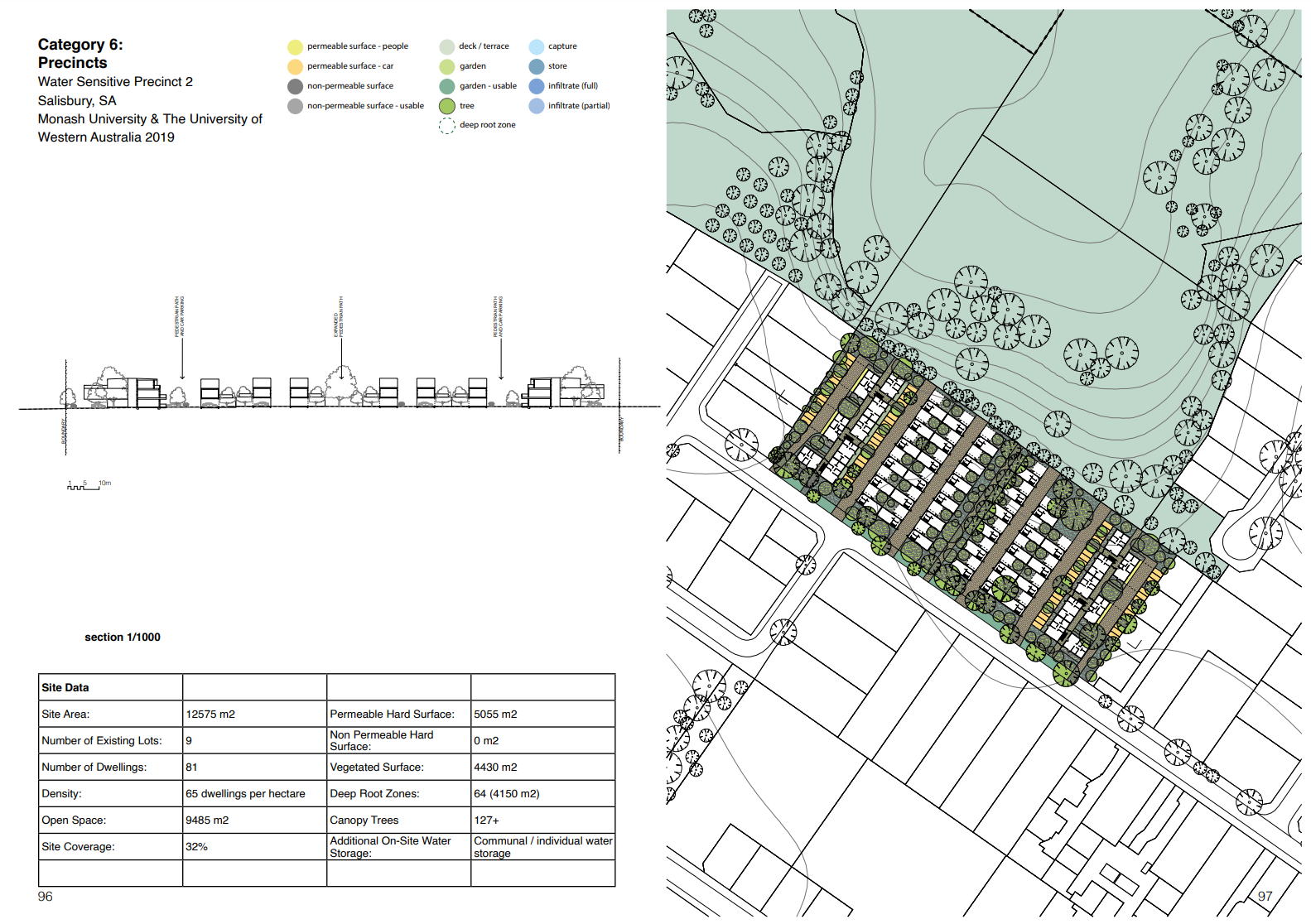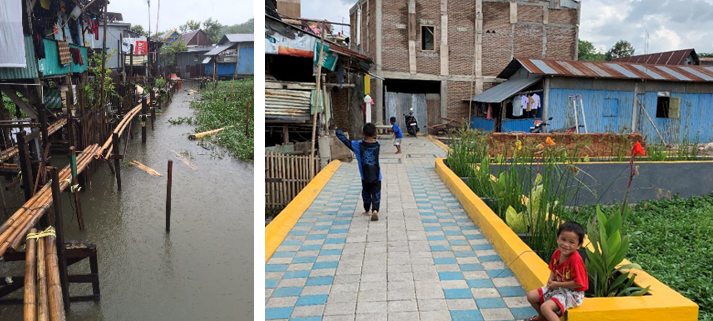Significant success in a challenging year
End-of-year message from the CEO —
2020 has been a year of unprecedented challenges but also inspiring stories of innovation, adaptation and dedication. We have been reminded of the value of things we may have previously taken for granted and found new ways of working and collaborating. The CRCWSC, like so many others, adapted and stayed the course. I am proud of, and grateful to, our people, partners and Participants whose commitment and support enabled us to continue our research and deliver important industry projects in extraordinary circumstances. Thanks to these efforts we finish 2020 with a host of significant achievements and are well positioned for a big finish to the CRCWSC in 2021.
We applied research in partnership with industry
Cities and towns recognise the need for integrated urban water management, but implementation remains challenging. Together with our partners, we are now completing the Tranche 2 research program and converting almost 9 years of research and collaboration into tools and processes to guide cities from vision to implementation of the water sensitive cities approach.
As well completing this research, we accelerated the roll out of key resources including the WSC Scenario Tool, the WSC Index, the Benefit Cost Analysis Tool, the Value Tool, the Infill Typologies Catalogue and Infill Performance Evaluation Framework. During FY1920, over 2,000 practitioners and end users were exposed to CRCWSC outputs via 124 seminars and workshops, videoconferences, site tours, and other activities. Early in the year, we pivoted from face-to-face activities to online activities, in response to the COVID-19 pandemic. Pleasingly, these virtual activities increased participation in some activities.
We expanded our WSC Index Benchmarking Tool to integrate a Sustainable Development Goals (SDGs) filter, enabling analysis of how a water sensitive cities approach can help achieve SDG targets, and vice versa. We expanded the network of benchmarked cities, taking the total number of applications to 55 and commenced Index training for knowledge partners in 11 countries.
We worked with a range of industry partners to adapt and apply the Transition Dynamics Framework for their contexts to understand and prioritise implementation actions to ensure the formal and informal precursors for city transition are in place.
We released final versions of the INFFEWS Benefit–Cost Analysis Tool and the Value Tool, along with comprehensive training to over 100 organisations and other guidance materials. Increasingly, industry are applying these tools. For example, government agencies in New South Wales, Queensland and Victoria are applying the tools to identify and value the benefits of water sensitive approaches. Utilities and developers are also using the tools to demonstrate the value of water sensitive initiatives. In Victoria, this growing community of practice is facilitated by an online portal for practitioners.
We valued an independent review of our RESTORE Tool by CRCWSC SME Associate E2DesignLab, which highlighted the tool’s functionality and capacity to be applied on-ground. And these examples are only a small sample of the ways industry is using and adapting our tools and products.
We released two new modules of the WSC Scenario Tool–The Air-temperature Response to Green/Blue Infrastructure Evaluation Tool (TARGET) and Urban Water Cycle (UWC) modules. Release of these modules was accompanied by webinars with industry Participants explaining how the modules can be applied.
Case studies showcase a comprehensive WSC path forward
We’re working with industry to develop four integrated case studies that will demonstrate how to use CRCWSC tools and processes from vision setting to implementation:
- In Townsville, applying the CRCWSC’s scenario and economic tools produced evidence that supported a more water sensitive approach to greenfield and infill development compared with a business as usual approach. These insights are being used in collaborative processes with Townsville City Council and leading to broad support from stakeholders to deliver on-ground actions.
- In Knutsford, CRCWSC economic tools are helping describe and quantify the costs and benefits of new infill development approaches that were developed in earlier CRCWSC research investigating water cycle and architectural (liveability) aspects of development performance.
- Salisbury is demonstrating the costs and benefits of water sensitive scenarios by applying the CRCWSC’s urban metabolism, scenario and economic tools, combined with an integrated performance framework.
- In Norman Creek, project partners are using the CRCWSC’s Performance Evaluation Framework, Scenario Tool and economic tools to build the business case for greening options. This analysis builds on earlier flood modelling using Tuflow that showed how integrating the proposed infill typologies into the urban fabric changed stormwater overland flow impacts.

Successfully articulating the value of water sensitive approaches will provide a mechanism for much wider uptake of water sensitive frameworks, plans and guidelines nationally.
We’re pleased to announce that by the end of our term in June 2021 we will have produced 1,700+ IP assets. By the end of the CRCWSC, Participants will be able to access these IP assets including our tools, guidelines and case studies, via our Knowledge Portal website that is currently under construction.
We continued to forge international partnerships

Our international activities with Participant and non-Participant organisations not only help us create more water sensitive urban areas globally, they also teach us valuable lessons about applying water sensitive principles on the ground—lessons we can bring back to Australia. Our activities also generate opportunities for our Participants to provide services in these overseas markets. Some of our achievements during the year include:
- Applying the WSC Index in Shandong, China and starting the process in Cape Town, South Africa
- Helping design and construct a demonstration site for the RISE project in Makassar, Indonesia, and launching a second pilot project in Suva, Fiji, in collaboration with Monash University, the Asian Development Bank, the Wellcome Trust and local partners
- Applying CRCWSC economics tools to value WSC case study projects in China, as part of a collaborative project with the World Bank. These case studies were part of a larger project to create a guide for identifying, valuing, selecting and then funding nature-based solutions for managing urban flooding. Building on this work, we started working on similar guides for Thailand and Vietnam in the Greater Mekong Region.
- Creating opportunities for several SME Associates via our work in India on the cities of Amaravati and Vijayawada (in partnership with the Department of Foreign Affairs and Trade and Australian Water Partnership)
- With our SME partner, WaterTech, developing the Sponge City Brain for the City of Kunshan in China. This Internet of Things platform aims to optimise water management and city planning objectives. We are now considering how we can apply this innovative platform to Australian cities.
- Continuing to build Australia’s international reputation in water resources management through presentations to international events in South Korea, China, Chile, Mexico and Italy
- Commencing work on an Urban WaterGuide for the Australian Water Partnership to help translate Australia’s urban water experience into international cities.
Our IP legacy will be housed on a Knowledge Platform
We’re working to develop an online Knowledge Platform so that practitioners will be able to quickly and easily find the research outputs they need, once the CRCWSC’s term ends. We are designing this website based on user data and industry focus groups to ensure it is easy to use. For key tools and IP products, we are working with industry partners to identify financially sustainable arrangements for maintaining and hosting our resources, supporting communities of practice around key tools, and harvesting knowledge and insights from application of different tools and sharing these through research and adoption activities. Training for future users will also be a priority.
In the future, the Knowledge Platform will also allow stakeholders to monitor and evaluate the impact of water sensitive actions, and in turn inform the continuous development and improvement of water sensitive city knowledge and tools.
We look forward to officially launching the Knowledge Platform at our fifth and final Water Sensitive Cities Conference on 15–18 March 2021.
Under the theme of Water Sensitive Practice. Every city. Every day, we will focus on the potential of water sensitive cities and the vision that, in the future, no matter which city we visit, we’ll see these practices being used daily, in projects big and small.
Our 5th Water Sensitive Cities Conference will be a mix of online and in-person events providing opportunities for locally focused, nationally connected conversations. This mix of formats gives us all an opportunity to learn from case studies, build networks within and between states so that these lessons can flow, showcase the most recent tools emerging from the CRCWSC, and explore how industry has begun to use and evolve them, and explore how others have scaled up sustainability practice, and what this means for water sensitive cities. There has never been a more crucial time to have these conversations.
The Water Sensitive Cities Institute has a home
As you’re no doubt aware, the Water Sensitive Cities Institute (WSCI) will continue to support the mainstreaming of water sensitive cities practices and further develop intellectual property developed through the CRCWSC post-June 2021. The Institute is already partnering with public, private and academic organisations to bid for the next generation of WSC research.
We have secured in-principle support to transfer ownership of the Institute to Monash University in FY2122, and we have developed a prospectus for potential industry partners. Early discussions are underway with potential partners across Western Australia, Victoria, South Australia, New South Wales and Queensland. We are committed to ensuring the WSCI is available to support the CRCWSC partners mainstream water sensitive practices
We welcome a fresh start in 2021
At the start of 2020, I noted our focus was on ensuring the CRCWSC finishes well and we have in place the support partners need to continue their WSC mission beyond 2021. We finish 2020 confident we will honour that commitment. It would not have been possible without the continued support of our partners and the drive of our team.
Thank you all for your advice, inspiration and dedication this year. There is a lot to be proud of from 2020 and lot to look forward to in 2021.
I wish you the best for a safe and relaxing festive season.
Ben Furmage
Chief Executive Officers
CRC for Water Sensitive Cities
